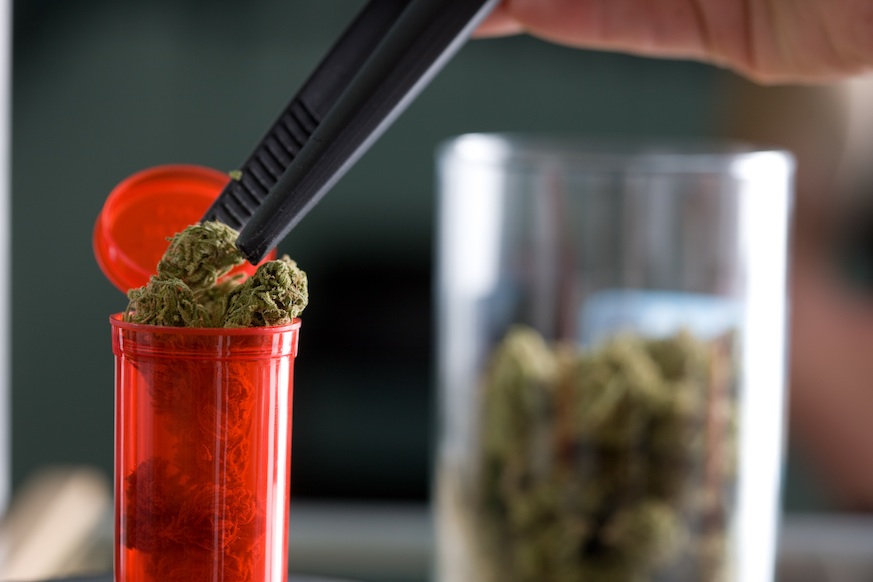Those who use opioids will qualify for medical marijuana under an amendment developed by the New York State Department of Health.
Patients can be eligible for medical marijuana use in New York state if they have been diagnosed with certain debilitating or life-threatening conditions.
Currently, 12 conditions make the cut: cancer; HIV/AIDS; amyotrophic lateral sclerosis (ALS); Parkinson’s disease; multiple sclerosis; spinal cord injury with spasticity; epilepsy; inflammatory bowel disease; neuropathy; Huntington’s disease; post-traumatic stress disorder or chronic pain.
Opioid use will be added to that list as a qualifying condition, the health department announced Monday. Officials cited the severity of the opioid crisis, which has led to more than 3,000 overdose deaths in New York state in 2016, as a reason for the change.
“The opioid epidemic in New York State is an unprecedented crisis, and it is critical to ensure that providers have as many options as possible to treat patients in the most effective way,” said New York State Health Commissioner Dr. Howard Zucker in a statement.
“As research indicates that marijuana can reduce the use of opioids,” he continued, “adding opioid use as a qualifying condition for medical marijuana has the potential to help save countless lives across the state.”
Rampant opioid use has lead to higher overdose rates, but it has other health effects as well. Those with opioid use disorder are also at a higher risk for HIV, hepatitis C and chronic diseases.
Since marijuana can be an effective pain treatment, officials said, it “greatly reduces” the chance of someone developing an opioid dependence.
Multiple studies have shown that option of medical marijuana has led to “significant reductions in opioid prescribing.” One study found that states with medical marijuana laws saw opioid overdose deaths drop by nearly 25 percent.
“I have been strongly advocating to remove barriers and allow the use of medical marijuana as an alternative to opioids because it will help patients, reduce the number of highly addictive opioids in circulation, and ultimately, it will save lives,” said Senator George Amedore, co-chair of the Senate Task Force on Heroin and Opioid Addiction, in a statement.
“We continue to be faced with an opioid epidemic that is devastating communities throughout our state,” he continued. “It’s important we continue to do everything possible to address this issue from all sides, so I’m glad the Department of Health is taking this measure that will help high-risk patients, as well as those that are struggling with, or have overcome, addiction.”
























